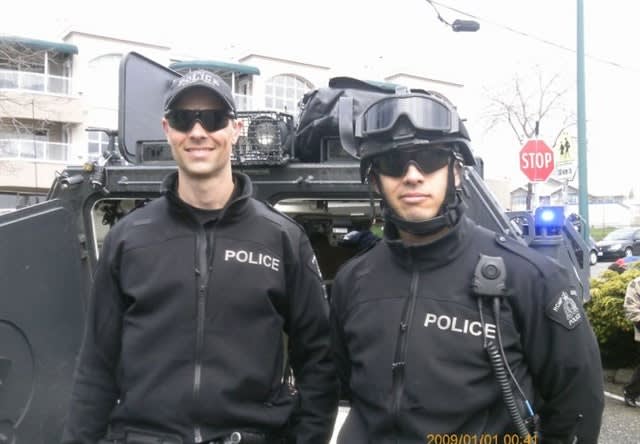The lingering bad economy continued to cause havoc on American law enforcement. Many law enforcement agencies have been forced to downsize dramatically, including laying off officers in unprecedented numbers. So-called "non-essential" services are being eliminated. Salaries and benefits, including pensions, are increasingly under attack. Several police departments have actually been forced to "go out of business."
The federal government, via the 2011 COPS grants, awarded $243 million to 238 eagerly awaiting local, state, tribal, and territorial law enforcement agencies in late September.
This $243 million is earmarked to hire, rehire, or retain 1,021 full-time officers and pay their entry salaries and benefits for three years. This is good news for the recipients, and bad news for those not receiving grants. The feds awarded only a fraction of what was requested, as the following numbers show:
2,712 agencies applied for COPS grants; 238 were awarded.
8,999 officer positions were requested; 1,021 positions were awarded.
$2.07 billion was requested; $243 million was awarded.
While $243 million for 1,021 new officers makes for a good start, it's only a start. It's only a fraction of what American law enforcement needs. And while there may be light at the end of the (economic) tunnel, it's a faint light. There are many disappointed agencies, departments, administrators, and personnel wondering about the next step.
You may wonder what this has to do with SWAT. Directly? Nothing. Indirectly? It falls under the heading of the "do more with less" philosophy. everyone must take a hit.
Increasingly, law enforcement administrators are being forced to make drastic rock-and-a-hard-place decisions, cutting all but the barest essentials to the bone. This is where SWAT comes in. Many departments simply can't afford to fund their own SWAT teams. The result is a growing number of SWAT teams across America that have been forced to merge into multi-agency teams. Many teams, including long established teams, are increasingly being downsized in personnel, equipment, and training. The once-rare, mutual-aid support among SWAT teams is now a necessity.
What should SWAT do to help their cause? For starters, be professionals. Be your agency's indispensable, go-to, tactical specialists. Do what you do best, and do it every time. SWAT is best at handling high-risk, dangerous assignments. Work with, not separate from, your department's officers. Gain your entire agency's respect from top to bottom. This goes for everyone on your team, because everyone is a representative of your team.
SWAT commanders and team leaders need to figure out how, when, where your team can best support your agency. You're looking for that "just right" fit into your department's overall scheme. It's far better to be "too busy" than "not busy." Out of sight means out of mind. And this could very likely result in your team's downsizing, or perhaps its demise.
The bottom line is the more useful your team is to your agency, the less inclined anyone will be to delete it from the organizational structure. Especially in these uncertain times, it's always wise to try to anticipate the future.
Remember, law enforcement administrators are being increasingly forced to make drastic cuts, possibly including your team. The last thing you want to do is to do, or not do, something to make that decision easy.
From its inception in the 1960s, SWAT has continually faced challenges about its necessity. In the early years, SWAT was often viewed as a "nice to have," rather than a "must have." Given SWAT's sterling track record over its more-than-40-year history, I would hope every SWAT team has attained "must have" status within their agencies.
If not, it's not too late to do something about it starting right now. The choice is yours.
Related: Feds Fund Hiring of 1,000 Local Officers












